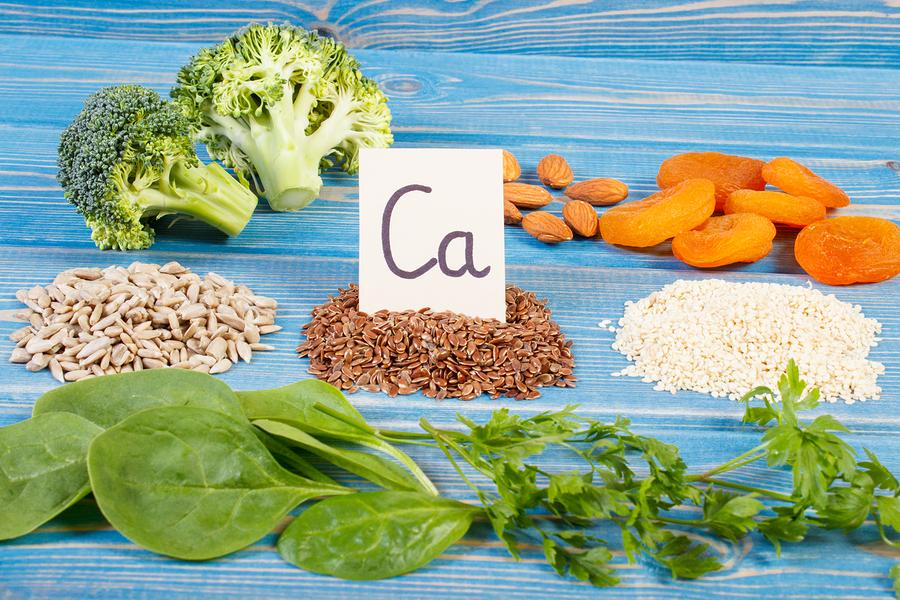
It is widely known that calcium is essential when it comes to bone health. However, what is not so widely agreed upon is the best way to meet the recommended daily amount of this essential nutrient!
If you do not consume the correct amount of calcium then you could be putting your body at risk of several adverse health conditions. For example, the onset of osteoporosis is more likely if you do not have consistent levels of calcium. This is largely because your bone density could be affected and the health of your bones will suffer as a result.
The majority of the calcium in the body is stored in the bones and in the teeth. Our calcium stores are depleted throughout each day and the body cannot produce more of it on its own. This is why it is important to consume calcium every day to restock these stores.
The Role of Calcium
Calcium plays an essential role in keeping bones healthy, but it has other important uses too.
The skeletal muscles and our internal organs are also supported by calcium, and would not be able to function properly without adequate amounts being present. Calcium also supports the process of blood clotting.
How Much Calcium?
It is generally recommended that women should consume 1,000 milligrams of calcium every day when they are under the age of 50. Once women have passed this age they should aim to increase their intake to reach 1,200 milligrams.
The recommended daily amount for men is 1,000 milligrams each day until the age of 70 years old, when the figure then increases to 1,200 milligrams.
Some experts have suggested that both men and women can consume as little as half the recommended daily amounts and not experience any adverse effects. In fact, the World Health Organisation has claimed that consuming 500 milligrams of calcium each day is an ample amount.
The Problem With Too Much Calcium
In addition to problems occurring when you are deficient in calcium, health issues can also arise if you have too much of it in your diet. If you are consuming too much calcium then you may find you are more prone to constipation. You may also negatively impact how well your body can absorb zinc and iron – although research into this is still ongoing.
Recent studies have suggested that claims that taking high does of calcium supplements might not actually be helpful when it comes to fracture prevention. And in fact, these high doses of calcium could even be harmful to the body.
Studies have shown that when women consume too much calcium through supplements their risk of developing kidney stones can increase. Research has also shown that taking too much calcium in the form of supplements could potentially increase the risk of heart attack.
The Best Sources of Calcium
It is entirely possible to consume an adequate amount of calcium each day from dietary sources.
The following list shows you how simple it is to reach your quota!
- An eight ounce serving of cooked broccoli contains 60 milligrams of calcium
- An eight ounce serving of cooked kale contains 180 milligrams of calcium
- An orange contains approximately 55 milligrams of calcium
- Two figs provide 55 milligrams of calcium
- An eight ounce serving of collard greens contains 360 milligrams of calcium
- An eight ounce serving of boiled soy beans contains 175 milligrams of calcium
Several foods, such as plant-based milks, tofu and breakfast cereals are often fortified with calcium, making it even simpler to reach your daily target!
What About Dairy?
Dairy is the most commonly associated food group with calcium consumption. However, because of the relatively high levels of calcium in dairy foods you may find that you are consuming excessive levels of calcium if you are eating dairy several times a day.
The Role of Vitamin D
When it comes to maintaining the health of your bones it is important to consume between 400 and 800 IU’s (International Units) of vitamin D each day. Vitamin D can be obtained through dietary sources as well as through exposure to sunlight. Similarly to with calcium, certain foods are fortified with this vitamin.
Vitamin D works with calcium to ensure the health of the bones is maintained and supported. If you do not have an adequate amount of vitamin D in your system then you will not be able to absorb calcium as efficiently as you would when your stores are at an optimum level.
Eating For Optimum Health
When we consider the information that has been gathered from the multitude of studies that have taken place in regards to calcium consumption, it could be suggested that the best way to get yours is to opt for dietary sources and avoid supplements.
Including a calcium dense food in each of your meals should make it simple to always have a beneficial amount in your body.
References
1) http://www.doctoroz.com/article/calcium-fact-sheet
2) https://www.health.harvard.edu/staying-healthy/how-much-calcium-do-you-really-need
Related Posts
Cigarettes May Inhibit Inflammation Treatments
Axial spondyloarthritis, also known as AxSpa, is a chronic…








